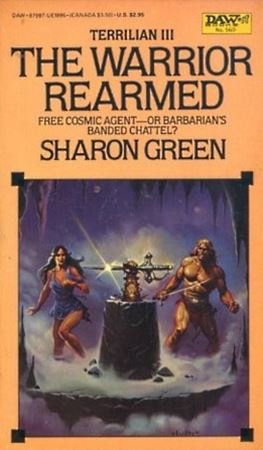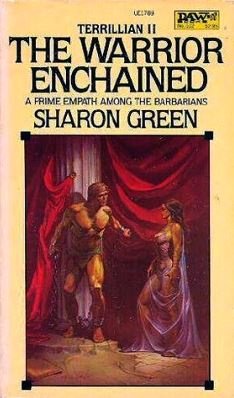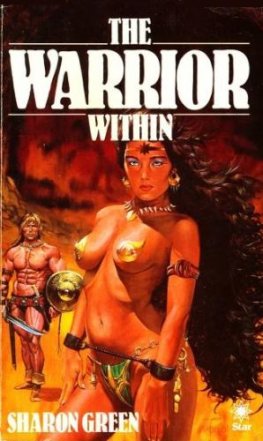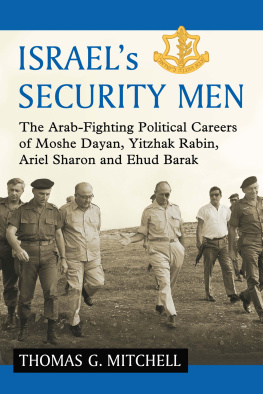
To my wife, Lily, who has been with me through it all and whose love and support have been my inspiration and strength.

SIMON & SCHUSTER PAPERBACKS
Rockefeller Center
1230 Avenue of the Americas
New York, NY 10020
www.SimonandSchuster.com
Copyright 1989 by Simon & Schuster, Inc.
Copyright 2001 by Simon & Schuster, Inc.
All rights reserved, including the right of
reproduction in whole or in part in any form.
This Simon & Schuster paperback edition 2005
SIMON & SCHUSTER PAPERBACKS and colophon are registered trademarks of Simon & Schuster, Inc.
Designed by Marybeth KilKelly/Levavi & Levavi
Photos in picture section researched, edited, and arranged by Vincent Virga
Manufactured in the United States of America
10 9 8 7 6 5
The Library of Congress has cataloged the hardcover edition as follows:
Sharon, Ariel.
Warrior : the autobiography of Ariel Sharon / by Ariel Sharon with David Chanoff.
p. cm.
Includes Index.
1. Sharon, Ariel. 2. Cabinet officersIsraelBiography.
3. GeneralsIsraelBiography. 4. IsraelHistory, Military. I. Chanoff, David. II. Title.
DS126.6A42A3 1989
956.9405092-dc20
[B]
89-6278
ISBN-13: 978-0-671-60555-1
eISBN-13: 978-0-7432-3464-1
ISBN-10: 0-671-60555-0
ISBN-13: 978-0-7432-2566-3 (Pbk)
ISBN-10: 0-7432-2566-X (Pbk)
Terrorist Raids Into Israel 1951-56 from The Arab-Israeli Conflict: Its History in Maps by Martin Gilbert, published by Steimatzky, Israel. Reprinted by permission. (page 87)
Picture Credits: David Rubinger (18); IDF Spokesman (30); Micha Bar-Am/Magnum (37); Moshe Milner/Sygma (46); Newsphoto Ltd, Tel Aviv (19); Uri Dan (23, 25, 48, 50, 51, 52, 53). Any photos not identified are from the authors collection.
Contents

Foreword by Uri Dan
O n February 6, 2001, the citizens of Israel elected Ariel Sharon as their prime minister. He accepted this positionone which few ever thought he would attainwith spiritual calm, but also with full seriousness, reflecting the single-minded purpose, as Winston Churchill once called it, with which he approached this awesome duty. Because to serve as prime minister of the Jewish state is to assume responsibility for the entire Jewish people, who have achieved their 2,000-year-old dream of reestablishing their homeland.
The people of Israel elected Ariel Sharon at a pivotal moment in their history, a time of critical danger that had seen the country, for the previous four months, dragged into an intolerable war of attrition, accompanied by waves of violence, terrorism, and hateful incitement initiated by Yasser Arafats Palestinian Authority.
Sharon had promised to restore security and revive the prospects of peace that Israelis so deserve and for which they have longed since their nation was created in 1948. And the people of Israel placed their trust in him, propelling him into office with an unprecedented electoral majority62.38 percent. It was a tribute to his well-deserved reputation for handling many of the nations critical struggles and crises, problems that others regarded as missions impossible.
Yet Sharon understood that in becoming prime minister, he was assuming the toughest assignment of all those he had previously known. After all, he had seen the war clouds gathering in the Israeli skies years before they appeared and had tried his utmost, through the many government and political positions hed held, to keep those threats from coming to reality.
Since this book first appeared in print, Sharon has faced many difficult challenges, both political and personal. Perhaps none was more painful than the death of his wife, Lily, of whom he wrote in the original dedication of this book, her love and support have been my inspiration and strength.
And yet, characteristically, he never lost his basic optimism. Though much of the world knows him by the title of this autobiography, he is fundamentally a man of peace. We can control our destiny, he said in a message to Israelis shortly after his election. United, I believe, we can win the battle for peace. But it must be a different peace: one with full recognition of the birthrights of Jews in their one and only land; one with security for generations; and one with a united Jerusalem, the eternal, undivided capital of the Jewish people and the State of Israel forever.
Sharon recognized the crisis at hand: It is not just over security arrangements for Israel, he said, it is by and large over the inherent right of Jews to exist and live in a Jewish democratic state, the one and only country in the world where we have the right and capability to defend ourselves by ourselves, and thus ensure the security of Jews everywhere. It was a desire to make clear this inherent right of existence that led Sharon to make his dramatic visit to Jerusalems Temple Mount on September 28, 2000a decision that unexpectedly set into motion the events that led to his remarkable election.
He had been warning of the coming crisis as early as 1990, when, with a heavy heart, he stunned Prime Minister Yitzhak Shamir by resigning as minister of industry and trade to protest the governments policies. The matter is one of national principle, he declared. Under Shamir, he charged, Palestinian terrorism runs unchecked within the whole of Eretz Israel [the land of Israel] and causes heavy losses of Jews and of innocent Arabs. As a result, he said, our capitalthe very heart of the Jewish peoplehas again been split in two. And he could not stand by and acquiesce. There are times when a man must know when to get up from his seat and start marching, he wrote Shamir. There are times in the life of a nation, in the lives of people, when they must awaken, arise, and fight with all their might before calamity overtakes them.
Four months later, however, he was back in the cabinet, having in the meantime prevented the Labor Party from toppling Shamirs government. A new crisis was at hand: a critical shortage of housing following a dramatic new wave of immigration from the soon-to-collapse Soviet Union. As minister of housing and construction, Sharon spearheaded the building of 144,000 new apartments and the renovation of 22,000 others within two years, an unheard-of achievement.
But the situation with the Palestinians always took precedence. Just months after the 1991 Gulf War, in which Israel withstood the onslaught of Saddam Husseins SCUD missiles, Sharon was one of the few voices to oppose Israels participation in the Madrid Conference. He understood that its real purpose was to force Israel into negotiating with the PLOat a time when the Palestinian charter still called for the destruction of the Jewish state. And that, he warned, would endanger Israels security.
To reduce the threat, he stepped up settlement efforts throughout the nation: not just in Judea and Samaria, in Gaza and the Golan Heights, but also in the Galileewhere he was instrumental in creating for the first time a Jewish majorityand the Negev, as well as greater Jerusalem. To hold the security zones, he knew, Jewish settlement there was essential.
Indeed, it is not by accident that the settlements are located where they are. They guard the cradle of the birth of the Jewish people, Judea and Samaria, while simultaneously affording Israel a strategic depth that is vital to its existence. The importance of these security zones has not lessened; indeed, it has become even greater.
Next page













